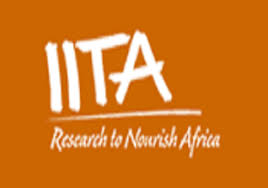Following the reported incident of the entry of Aflasafe into the food grain market in Niger State in particular, and some other states, a stakeholder sensitization session was organized recently by the Ministry of Agriculture, Harvestfield Industries Limited, and the International Institute of Tropical Agriculture.
The session was convened by the Permanent Secretary, Dr. Yakubu M. Bello at the Conference Hall of the State Ministry of Agriculture. Present at the session were management of the Ministry of Agriculture, leader-representatives of commodity associations, National Drug Law Enforcement Agency (NDLEA), National Agency for Food & Drug Administration and Control (NAFDAC), Niger State Emergency Management Agency (NSEMA), Nigerian Association of Women in Agriculture, Ministry of Women Affairs, Ministry of Health, and members of the press.
Following opening remarks from the Permanent Secretary, representatives from HIL and IITA, Drs. Abdullahi Ndarubu and Titilayo Falade provided more information on Aflasafe. They clarified that IITA and partners are the developers and registrants of the technology and that HIL is the commercial partner responsible for the manufacture and distribution of Aflasafe in Nigeria, with other manufacturers and distributors licensed by IITA in other countries of Africa.
They explained that Aflasafe, as a natural product comprises beneficial living organisms (non-toxigenic strain of Aspergillus flavus) coated with dye and is utilized as a biocontrol product to control aflatoxins, not food. They further clarified that Aflasafe is not a dangerous chemical, but a bioprotectant that is non-chemical, eco-friendly, and without pesticidal properties. Aflasafe falls in WHO’s safest hazard class ‘U’ (Unlikely to present acute hazard).
They explained that the Aflasafe product is broadcast at 10kg per hectare between 30 to 40 days after crops are planted. Once applied, the beneficial strains competitively exclude toxin-producing strains of A. flavus and this leads to the successful control of aflatoxins in multiple crops across Africa. Well-adapted, non-toxigenic indigenous A. flavus strains have been identified and formulated into customized products suitable for their respective ecologies.
They further explained that aflatoxins are cancer-causing poisonous substances that can accumulate in crops that can lead to liver damage and cancer, among other maladies.
Stakeholders agreed that more sensitization is needed to contribute to the production of safer foods and access to export and premium markets, thus improving the livelihoods of communities and increasing economic benefits.
Niger State as a major crop-producing state of Nigeria can benefit from the awareness that will further ensure that Aflasafe is used as an agricultural input following instructions of use as indicated on the package.
In a strategic meeting following the technical session, the Permanent Secretary, Niger State Ministry of Agriculture, NDLEA, NAFDAC, NSEMA, HIL, and IITA met to discuss the next steps towards facilitating increased food safety awareness and (including aflatoxin management) collaboration with stakeholders towards improvement of livelihoods, economic development, and food safety.
It was envisaged that the increase in adoption of Aflasafe in local farming systems will boost the export potential of various agricultural produce and facilitate the attainment of zero reject being targeted by the Federal Government of Nigeria.
Send your press invite, news, press releases/articles to augustinenwadinamuo@yahoo.com. Also, follow us on Twitter @PrimetimeRepor1 and on Facebook on facebook.com/primetimereporters or call the editor on 07030661526.

